To believe in the future of agriculture also means to support and believe in our ag teachers. For many of us — such as myself — our ag teachers are the ones who exposed us to the expansive field of agriculture. Diversity and identity is part of that expanse, and LGBTQ+ identifying leaders and ag educators share here what it means to be their best true and authentic selves
We do not have an accurate percentage of agriculturists based on LGBTQ+ identities the same way we do with race and ethnicity. But we do not need a head count to know LGBTQ+ identifying people are underrepresented in agriculture compared to their cisgender and/or straight counterparts.
“Representation matters in all fields,” said Chris Livengood, a high school ag teacher and FFA advisor. “I want my students to know that ag is for everyone.”
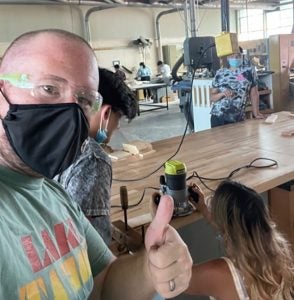
Livengood grew up on a farm in West Virginia, where he was involved in his FFA chapter and the beef industry. He knew he wanted to be an ag teacher since he was in high school and obtained a Bachelor of Science degree in agricultural education and extension from West Virginia University.
“In the Appalachian Mountains, being openly gay really wasn’t an option,” he said. “But I found solace in FFA. I had lots in common with other kids, but was also able to be outspoken and loved.”
Livengood is not the only one who felt this way — this is an experience that newer generations of ag teachers also relate with all too well.
“There was not a lot of positive representation in FFA and agriculture,” said Damian Arceo, 24, an ag teacher of one year. “I wasn’t able to see myself amongst the successful. I knew there was some representation out there, but I didn’t experience it personally.”
Arceo grew up in the Sacramento, California, area and attended Delta High School, where he was deeply involved in his FFA chapter. In 2020, he obtained a Bachelor of Science degree in agriculture with an option in agricultural science and education from California State University, Chico. In 2022, Arceo obtained a Master of Arts degree in education and a teaching credential in agriculture from UC Davis. As of spring 2022, he completed his first year teaching high school agriculture at Stag High School in Stockton, California.
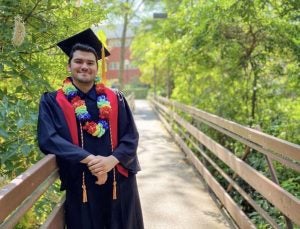
Arceo was not always interested in agriculture the way he is now. His Hispanic heritage and family background as farmworkers steered him away from agriculture as a career. But this changed when he was accidentally placed in an ag class in high school.
“I could see myself excelling in leadership and raising small animals,” he said. “I slowly started doing everything I could do with the help of my advisors. It gave me lots of confidence and validation in public speaking contests and encouraged me to participate more.”
Arceo and Livengood’s positive experiences as FFA members helped influence their decision to be ag teachers. They wanted to give future generations of young minds an impactful and meaningful experience in agricultural education similarly as they did. But they also had bigger goals in mind when deciding this.
“I knew that part of the reason I wanted to do this was to help with representation, so students can see me and my identities and feel represented too,” said Arceo. “I want my students to know that all students regardless of their background are respected and valued in FFA and my classroom.”
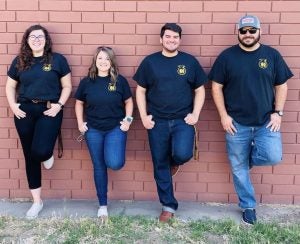
Sharing a positive FFA experience and being a good role model is something that inspires Jason Ferreira, an ag teacher of 12 years, as well. “You can’t set the example if you can’t be the example,” he said.
Ferreira graduated from Tulare Union FFA in California in 2006 where he took on leadership opportunities and raised several livestock animals such as hogs, sheep, and rabbits. He also obtained a Bachelor of Science degree in agricultural education from California State University, Fresno, and a Master of Science in agricultural education from California State University, Chico.
Ferreira was not always out when he was in high school and college, he said. He thought his identity might be a hindrance in his career, “especially in education,” he said.
“If I’m not living my true self, I can’t expect others to,” Ferreira said. “If we focus on being our true selves and trying our best, your orientation shouldn’t make a difference in your success. I can still be just as — maybe even more — successful as others if I’m a 100 percent myself.”
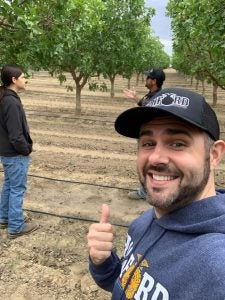
Coming out and authenticity are things LGBTQ+ often face challenges in. Livengood did not come out as gay until a couple of years into college, he said.
“When I was in high school, no one was out,” he said. “If anyone was, it would have been big deal. I love how open this generation is — that is special to me.”
Arceo came out during his junior year of high school. Even then, he had always felt that it was something about himself that he had to hide in fear of judgment and exclusion, he said.
But it is for these reasons that they are also aware of the impact they can have on their students.
Livengood never talked about his sexuality in class, he said. But when his students became aware of it and his marriage, he started to connect and relate more with marginalized kids.
“As a teacher, I can see this sense of relief when students are understood and represented,” he said. “I hope that other ag teachers can see the value in letting people be themselves.”
Livengood simply wants his kids to feel represented and comfortable, he said. He recalls a moment when his child was helping one of his students with a livestock animal, and his child told him that “he [the student] looks up to you because he sees what you do.”
“My form of activism is being myself and being open about my family,” he said. “Yeah I’m gay, and I can show you how to use a miter saw. It’s fun and I like what I do.”
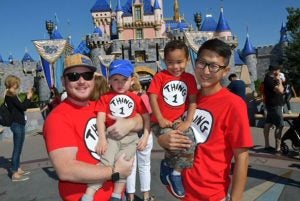
Ferreira also shares similar experiences in that he serves as a safe place for his students to go to.
“I’ve had students find comfort in having a teacher to reach out to about their difficulties and making sure their feelings are valid,” he said.
Even though Arceo is new to teaching, these are themes he notices in his classroom and aims to uphold as well.
“Being a gay ag teacher has allowed me to connect and relate to so many more students and staff,” Arceo said. “If kids are going to learn, they need to be safe, and each time a student can be more comfortable with who they are, that’s a win. I hope I can inspire others to be happy with who they are.”
Arceo’s career as an ag teacher may just be starting, but he’s already taking action to make sure his students can see themselves in the curriculum and find success in what they learn. In his floral classes, he highlights designs from different cultural backgrounds and identities, he said.
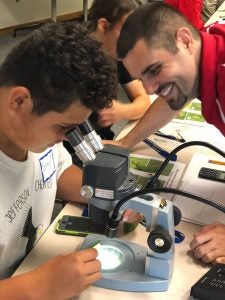
Ferreira has hopes of his own for those that dedicate themselves to not understanding such communities.
“When you think of farmers, what comes to mind?” Ferreira asked. “It’s time for us to understand the traditional farmer family is changing with time and we need to accept the media will be filled with a new generation of farmer families. Growing food to feed you is not dependent on a farmer’s orientation.”
As for the readers who are facing issues of their own with identity and their roles as ag leaders, Livengood and Ferreira share some advice.
“In life, find what you’re passionate about and don’t hinge it on being LGBTQ+,” he said. “I want students to find their passion and not worry if their sexuality will hold them back — coming out helped me be a better role model.”
“You’re in charge of your future and make sure you experience everything you can,” said Ferreira. “Don’t hold back and wonder if that’s the future that’s ‘s right for you.”
Saul Reyes serves as the 2022 American Farmland Trust Agriculture Communications Intern at AGDAILY, with a focus on helping to amplify diversity and minority voices in agriculture. An FFA alum, Reyes is a student at California State University-Chico and is double majoring in plant and soil science and multicultural and gender studies, while minoring in intersectional Chicanx/Latinx studies and public relations. He can be found on Twitter @sreyes710.





